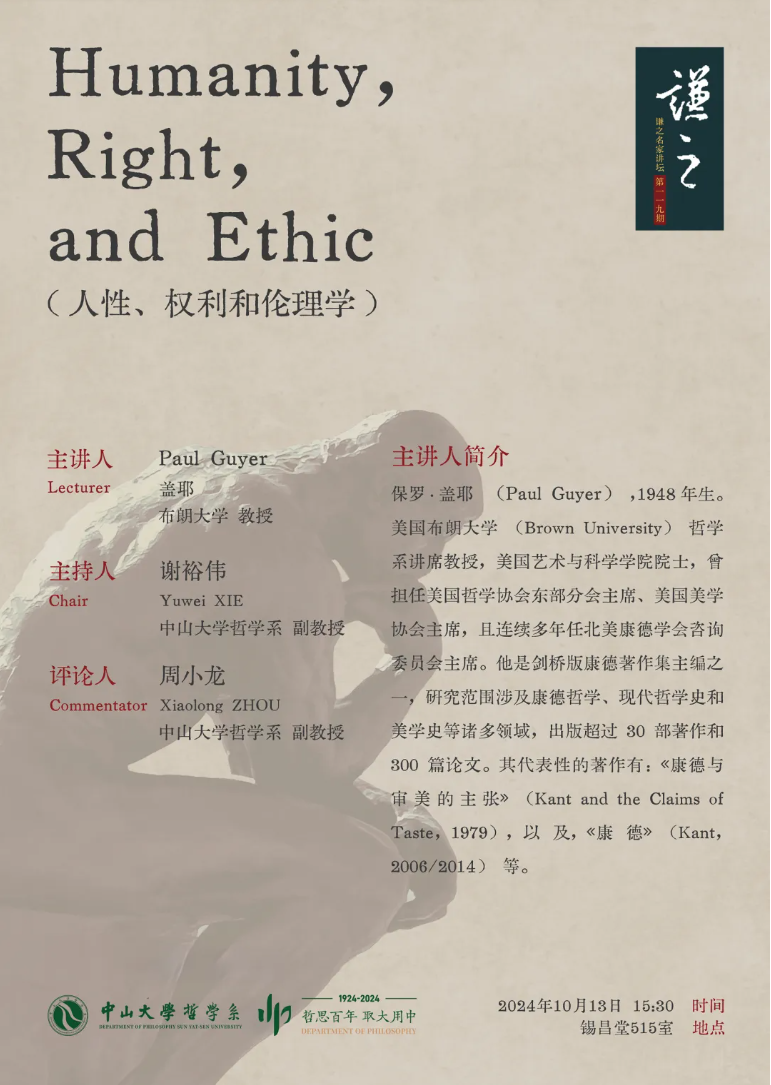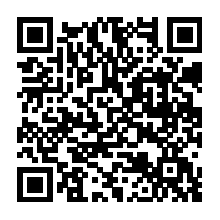谦之名家论坛预告|Paul Guyer:人性、权利和伦理学
Humanity, Right, and Ethic 人性、权利和伦理学

Humanity, Right, and Ethic
人性、权利和伦理学
主讲人(Lecturer):Prof. Paul Guyer
主持人(Chair):谢裕伟(Yuwei XIE)
评论人(Commentator):周小龙(Xiaolong ZHOU)
时间:2024年10月13日(星期日)15:30
地点:锡昌堂515
主讲人简介(Introduction to the Lecturer):
Prof. Paul Guyer,1948年生。美国布朗大学(Brown University)太阳集团城娱8722讲席教授,美国艺术与科学学院院士,曾担任美国哲学协会东部分会主席、美国美学协会主席,且连续多年任北美康德学会咨询委员会主席。Guyer教授是剑桥版康德著作集主编之一,研究范围涉及康德哲学、现代哲学史和美学史等诸多领域,出版超过30部著作和300篇论文,是国际康德学界的领军人物。
摘要(Abstract):
The status of humanity as an end in itself is the foundation for all of what Kant calls die Moral, that is, morality as a whole. It is therefore the foundation for both "Right," the coercively enforceable part of morality, and ethics, those of our duties that should not be coercively enforced. But what is humanity? In the Metaphysics of Morals, Kant defines it simply as our ability to set our own ends. But elsewhere he adds our capacity to do so morally; these two aspects define a general conception of rational agency. Then Kant adds further tendencies specific to human beings, both strengths and weaknesses. All of these must be included in a complete picture of Kant's conception of humanity, leading to a four-leveled conception of moral theory, including moral psychology: the most general features of rational agency as such; certain general features of the human condition, such as embodiment on the finite surface of a globe, that generate the juridical and ethical duties of human beings; general psychological strengths and weaknesses of human beings that affect our efforts to be moral; and prejudices of individual human beings or groups that must be overcome.


